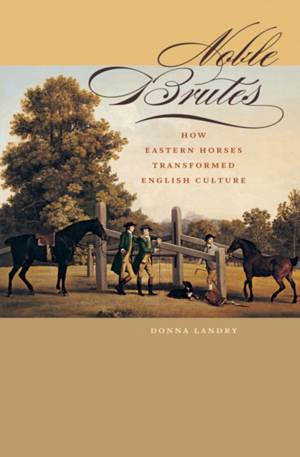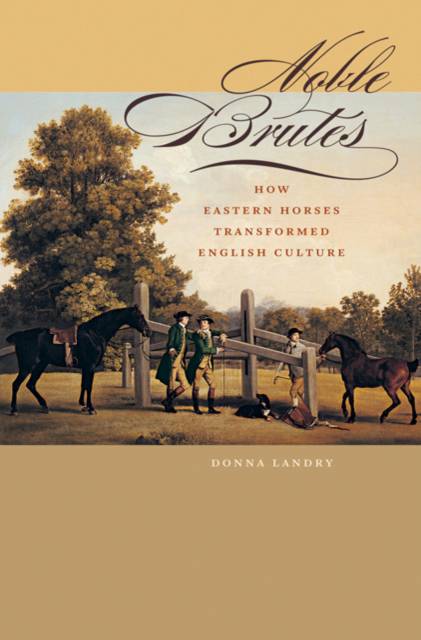
- Retrait gratuit dans votre magasin Club
- 7.000.000 titres dans notre catalogue
- Payer en toute sécurité
- Toujours un magasin près de chez vous
- Retrait gratuit dans votre magasin Club
- 7.000.0000 titres dans notre catalogue
- Payer en toute sécurité
- Toujours un magasin près de chez vous
Description
"His lordship's Arabian," a phrase often heard in eighteenth-century England, described a new kind of horse imported into the British Isles from the Ottoman Empire and the Barbary States of North Africa. Noble Brutes traces how the introduction of these Eastern blood horses transformed early modern culture and revolutionized England's racing and equestrian tradition.
More than two hundred Oriental horses were imported into the British Isles between 1650 and 1750. With the horses came Eastern ideas about horsemanship and the relationship between horses and humans. Landry's groundbreaking archival research reveals how these Eastern imports profoundly influenced riding and racing styles, as well as literature and sporting art.
After only a generation of crossbreeding on British soil, the English Thoroughbred was born, and with it the gentlemanly ideal of free forward movement over a country as an enactment of English liberties.
This radical reinterpretation of Ottoman and Arab influences on horsemanship and breeding sheds new light on English national identity, as illustrated in such classic works as Jonathan Swift's Gulliver's Travels and George Stubbs's portrait of Whistlejacket.
Spécifications
Parties prenantes
- Auteur(s) :
- Editeur:
Contenu
- Nombre de pages :
- 248
- Langue:
- Anglais
- Collection :
Caractéristiques
- EAN:
- 9780801890284
- Date de parution :
- 23-12-08
- Format:
- Livre relié
- Format numérique:
- Genaaid
- Dimensions :
- 160 mm x 224 mm
- Poids :
- 476 g

Les avis
Nous publions uniquement les avis qui respectent les conditions requises. Consultez nos conditions pour les avis.






